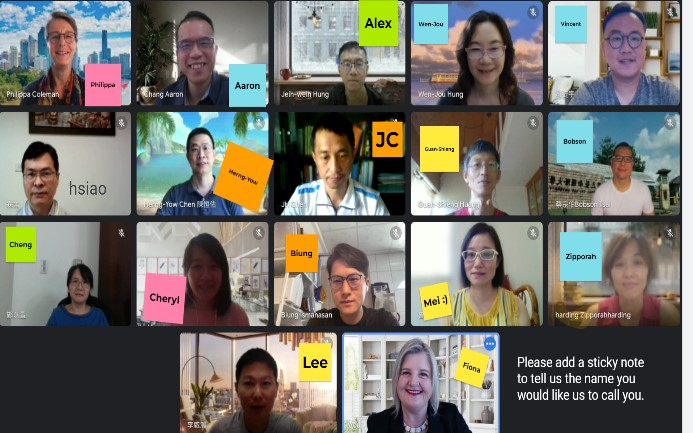Abstract
The goal of National Chi Nan University (hereafter NCNU) in fulfilling the Program on Bilingual Education for Students in College (hereafter BEST) is to become an international university by strengthening students' English abilities and cultivating English medium instruction (EMI) professors. With the solid foundation of the existing bilingual courses and the support of the Ministry of Education, BEST was developed to create a support system for EMI by improving four aspects of NCNU: organization and the system, professors and teaching, students and learning, and promotion and quality assurance.
1. Improving students' English abilities
NCNU has created a strong English learning environment that consists of a foreign language learning platform, foreign language lectures and workshops, competitions, an all-English learning space, professional academic English courses, and briefing courses. NCNU has also established an EMI student support system, which categorizes students' English abilities, provides in-person and online learning resources, reinforces teaching assistant training, and provides incentives to improve students’ English abilities. In Academic Year 2021/2022, NCNU Language Teaching and Research Center offered 33 courses on foreign language listening, speaking, reading, and writing skills that were attended by 5,598 faculty members and students. The center also held five English competitions for students to learn to apply English to real life, which 700 students participated in. The online speaking learning platform MyET was established in the first semester of Academic Year 2021/2022 to help students train their speaking skills through pronunciation, intonation, fluency, and volume analyses. By the second semester, 1,679 users had registered to MyET across NCNU, and 6,014 certificates had been issued to students who completed the professor’s assignments. The center has also purchased courses offered by the LiveABC Language Proficiency Center, providing an additional option to students for learning foreign language.
2. Building an EMI and support system in NCNU
The NCNU Council for the Advancement of Internationalization was formed to strengthen NCNU' s internationalization strategies, with the principal serving as the chairperson and holding regular meetings to track, implement, and manage strategies to create an environment conducive to fulfilling the goal of creating a bilingual nation by 2030. NCNU also established the Bilingual Education Advocacy Center to construct a campus-wide bilingual education and support system that encourages and helps faculty members to invest in bilingual education, thus increasing the number of bilingual education courses and professors teaching courses, enhancing students’ bilingual abilities, facilitating internationalization, and increasing job competitiveness. The center also holds EMI professor training sessions to strengthen their EMI skills.
3. Achievements in the four dimensions:
(1) Organization and the system
The NCNU Council for the Advancement of Internationalization was formed to reach a consensus regarding the creation of an environment conducive to fulfilling the goal of becoming a bilingual nation by 2030. The Bilingual Education Advocacy Center was formed to construct a campus-wide bilingual education and support system, promote bilingual education, improve students’ bilingual abilities, and increase students’ international mobility and global literacy.
(2) Professors and teaching
NCNU trains EMI professors in the knowledge and skills to become all-English professors. In 2018, NCNU cohosted an overseas professional EMI professor training program with the University of California, San Diego of the United States. In Academic Year 2021/2022, NCNU cohosted an all-English professor training camp with the Queensland Institute of Australia, with several professors from sister schools in other countries being invited to participate. Through these efforts, NCNU has worked to coteach courses with sister schools, comprehensively improve the environment and quality of its English teaching, and share learning resources. As a result, the number of subsidized all-English courses has increased each year. In Academic Year 2021/2022, 68 all-English courses were approved for subsidies, a 31% increase from the 52 courses in 2018.
(3) Students and learning
In Academic Year 2021/2022, NCNU began implementing the Oxford Placement Test to all entering students, with the pretest scores serving as the basis for students' assignment to classes of different levels and teaching materials. In Academic Year 2021/2022, 1,078 entering students underwent the Oxford Placement Test, with 31% of them exhibiting B2 English proficiency and 57% of them taking all-English courses to further strengthen their English abilities. To encourage students to take EMI courses, NCNU implemented the NCNU & University of California, San Diego, Guidelines for Rewarding Students for Taking EMI Courses. In Academic Year 2021/2022, an average of 11.1% of sophomores and first-year graduate students took one EMI course.
NCNU also encourages students to take courses offered by sister schools from other countries and provides partial subsidies to those with exceptional performance. These courses, such as the winter online global classroom offered by Osnabrück University in Germany, the summer school short-term courses offered by West University in Timisoara, Romania, and the Systems Thinking in Environmental Management program offered by the Department of Environmental Management and Protection at California Polytechnic State University in the United States, facilitate exchange between Taiwanese faculty members and students and those from other countries and ensured opportunities for international academic exchange during the COVID-19 pandemic.
(4) Promotion and quality
NCNU created a website for the Bilingual Education Advocacy Center to introduce EMI courses and provide information on activities related to bilingual education. NCNU has also adopted a plan–do–check–act system to ensure teaching quality. Teacher feedback is collected regularly, with survey results being submitted to the School Affairs Research Center for analysis and to provide crucial information to the respective departments of EMI courses and the Bilingual Education Advocacy Center to improve teaching. The center also regularly holds task force meetings to ensure action plans are being completed and to track the progress.

